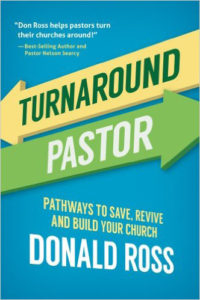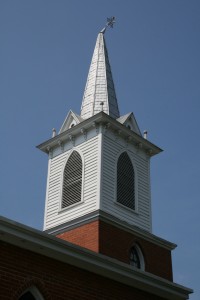by Dr. Donald E. Ross – Author and Presenter at the 2017 Summit
What is a Turnaround Church? Turnaround Churches experience a decline nearly impossible to reverse, but somehow they do. Most churches in similar situations simply go out of business. What are the critical aspects of a church and pastor that see terminal decline turned into growth?
Let’s begin by defining a turnaround church. A turnaround church has recognized that, due to consistent decline, within a generation it will be out of business. This church has courageously decided to face the truth and make a series of extremely difficult and painful decisions to reverse that trend.
Mission:
 I’d like to say that “Everything rises or falls on mission” but I think someone has already captured that sentiment. Regardless, mission is critical. Understanding that both the leader and the church are part of the mission of Christ gives the needed elements to embrace a turnaround.
I’d like to say that “Everything rises or falls on mission” but I think someone has already captured that sentiment. Regardless, mission is critical. Understanding that both the leader and the church are part of the mission of Christ gives the needed elements to embrace a turnaround.
Mission says, “This is not about me, it’s about Jesus”. When we understand that nearly 4,000 churches a year go out of business, and we are not planting nearly enough to replace them, we can understand that turning around declining churches as well as planting new ones is very much a part of Christ’s mission.
In many ways, the challenge of a turnaround church was written for us 2,000 years ago in Revelation, 3:1-3. The letter to the church of Sardis says: “To the angel of the church in Sardis write: These are the words of him who holds the seven spirits of God and the seven stars. I know your deeds; you have a reputation of being alive, but you are dead. Wake up! Strengthen what remains and is about to die, for I have not found your deeds complete in the sight of my God. Remember, therefore, what you have received and heard; obey it, and repent. But if you do not wake up, I will come like a thief, and you will not know at what time I will come to you.”
In a very real sense, a declining church may have had a reputation of being alive, but it is not alive now. It is on life support and needs help.
Both the pastor and church leaders need to work together to “strengthen what remains and is about to die.” This is hard work, but possible and needed, if the leaders and church are willing to pay the price to not only survive, but also learn to thrive.
Vision:
This turnaround is usually led by a visionary leader, often brought in from outside the church’s current culture. The value of bringing in new leaders is that they are not stuck in the current thinking trends or bogged down by the church’s history. Continue reading


